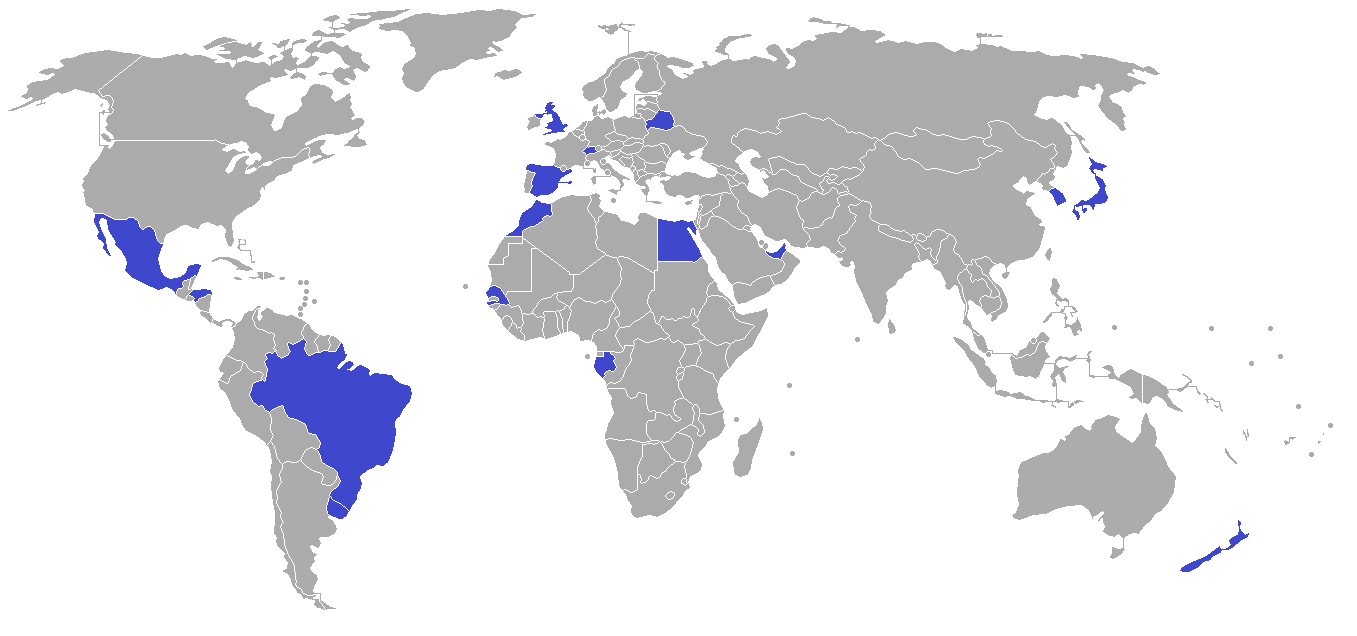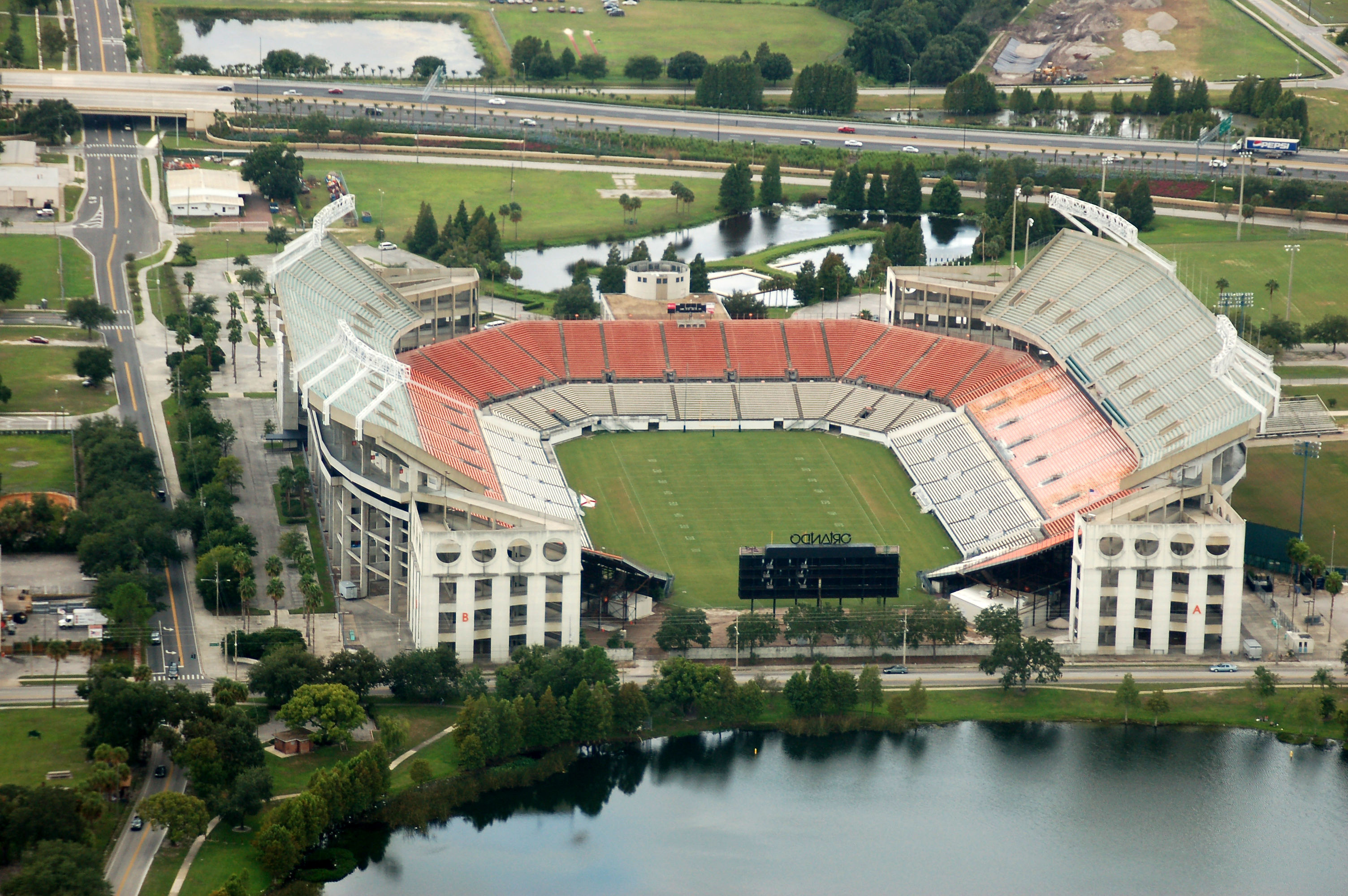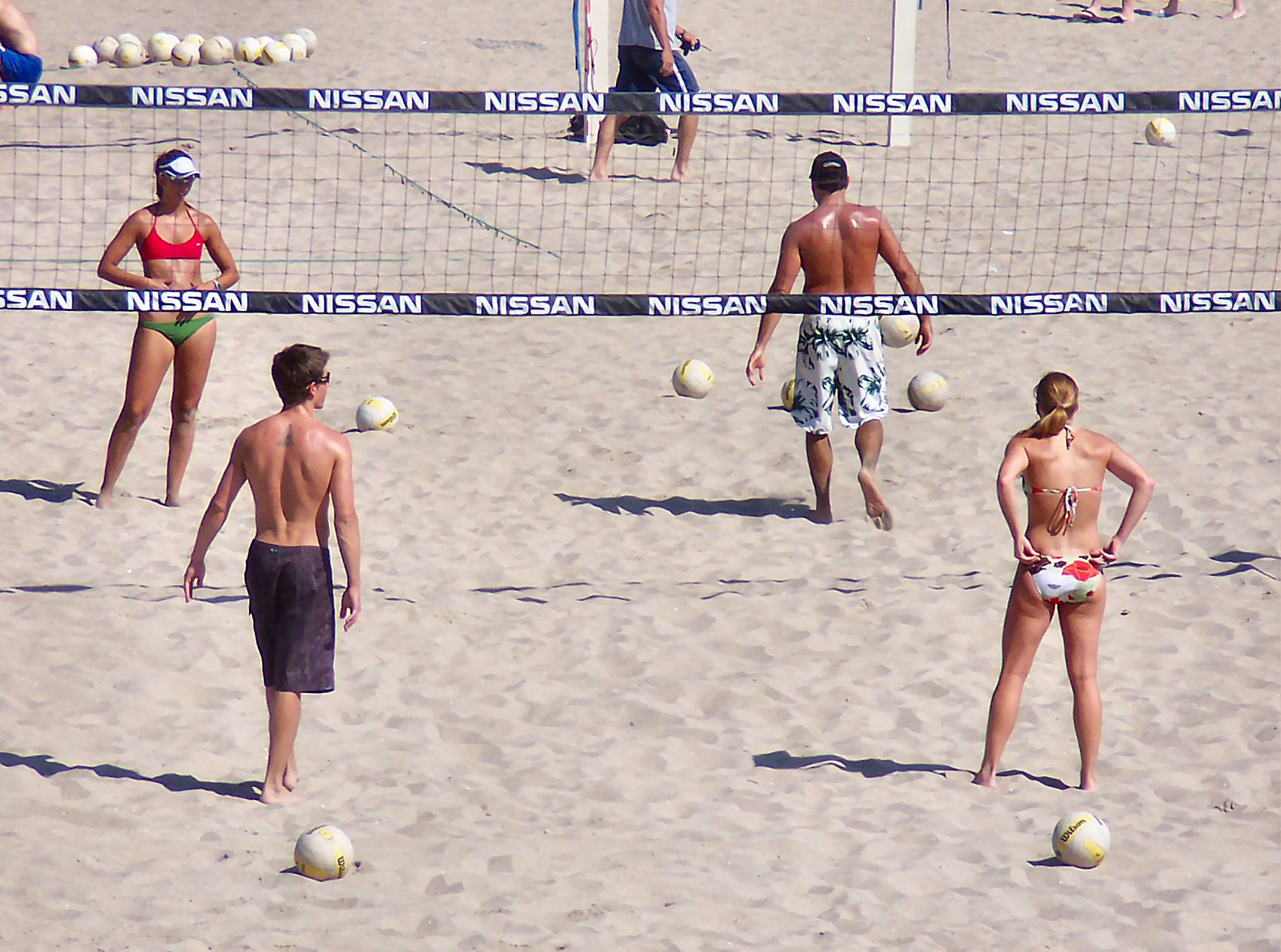|
Sweden National Under-23 Football Team
The Sweden Olympic football team (also informally known as Sweden national under-23 football team from 1992) is the football team representing Sweden in Olympics and is controlled by the Swedish Football Association. The team has been active since 1984, when the IOC restricted UEFA countries to only include players without FIFA World Cup appearances. The team qualified for the 1988 and 1992 Olympics, reaching the quarter-finals both times. In the 2016 Olympics, Sweden was eliminated in the group stage. Since 1992, the UEFA European Under-21 Championship acts as the qualification to the Olympics for the European teams. Therefore, the Swedish Olympic team is only active in the event of Sweden qualifying for the Olympics. The team has been coached by Benny Lennartsson (1986–1988), Nisse Andersson (1992) and Håkan Ericson (2016). Olympic record Football at the Summer Olympics was first played officially in 1908. The Olympiads between 1896 and 1980 were only open for amateur p ... [...More Info...] [...Related Items...] OR: [Wikipedia] [Google] [Baidu] |
Swedish Football Association
The Swedish Football Association ( sv, Svenska Fotbollförbundet, SvFF) is the governing and body of football in Sweden. It organises the football leagues – Allsvenskan for men and Damallsvenskan for women – and the men's and women's national teams. It is based in Solna and is a founding member of both FIFA and UEFA. SvFF is supported by 24 district organisations. Background Svenska Fotbollförbundet (SvFF) (English:Swedish Football Association) was founded in Stockholm on 18 December 1904 and is the sports federation responsible for the promotion and administration of organised football in Sweden and also represents the country outside Sweden. SvFF is affiliated to the Swedish Sports Confederation (RF) and the Fédération Internationale de Football Association (FIFA) and Union of European Football Associations (UEFA). Karl-Erik Nilsson has been the President since 2012. In 2009 there were 3,359 clubs affiliated to the Svenska Fotbollförbundet with a total of more ... [...More Info...] [...Related Items...] OR: [Wikipedia] [Google] [Baidu] |
Benny Lennartsson
Benny Lennartsson is a Sweden, Swedish football (soccer), football coach, former football and bandy player. He has managed Örebro SK, Lyngby FC and Bristol City among others. Managerial career Viking In 1988, Lennartsson signed for Norway, Norwegian club Viking FK. He won promotion from the OBOS-ligaen, second tier in his first season at the club. The next season, Viking were the winners of the Norwegian Football Cup, Norwegian Cup by beating Molde FK, Molde in the final. In 1991, he won the Eliteserien (football), first tier of Norwegian football, before leaving the club the same season. In 2000, Lennartsson joined Viking for a second spell. It would prove to be a successful one, as the club finished in third place in his first two seasons in charge. Viking also got to the final of the Norwegian Cup in both 2000 and 2001, but only winning it in the latter. His last season as manager of Viking, was in 2002. The club finished in 4th place in the league and knocked Chelsea F.C., C ... [...More Info...] [...Related Items...] OR: [Wikipedia] [Google] [Baidu] |
Football At The 2012 Summer Olympics – Men's Tournament
The men's football tournament at the 2012 Summer Olympics was held in London and five other cities in Great Britain from 26 July to 11 August. Associations affiliated with FIFA were invited to enter their men's U-23 teams in regional qualifying competitions, from which 15 teams, plus the hosts Great Britain, reached the final tournament. Men's teams were allowed to augment their squads with three players over the age of 23. It was the first men's Olympic football tournament to feature a team representing Great Britain since the 1960 Summer Olympics in Rome. The competition also marks the return of Uruguay to an Olympic Championship since 1928 when it became two-time champions. The gold medal was won by Mexico who defeated Brazil 2–1 in the final. Schedule The match schedule of the men's tournament. Qualification Each National Olympic Committee may enter one men's team in the football tournament. The 2004 and 2008 Olympic gold-medallists Argentina failed to qualify, after ... [...More Info...] [...Related Items...] OR: [Wikipedia] [Google] [Baidu] |
Football At The 2008 Summer Olympics – Men's Tournament
The men's football tournament at the 2008 Summer Olympics was held in Beijing and four other cities in the People's Republic of China from 7 to 23 August. Associations affiliated with FIFA were invited to enter their men's under-23 teams in regional qualifying competitions, from which 15 teams, plus the host nation, reached the final tournament. Men's teams were allowed to augment their squads with up to three players over the age of 23. For these Games, the men competed in a 16-team tournament. Preliminary matches commenced on 7 August, the day before the Games' opening ceremony. The teams were grouped into four pools of four teams each for a round-robin preliminary round. The top two teams in each pool advanced to an eight-team single-elimination bracket. The tournament was won by Argentina, who beat Nigeria 1–0 in the final, as part of a record streak of 12 consecutive wins in football competitions at the Summer Olympics (six wins in 2004, six wins in 2008). Despite the ... [...More Info...] [...Related Items...] OR: [Wikipedia] [Google] [Baidu] |
Football At The 2004 Summer Olympics – Men's Tournament
The men's football tournament at the 2004 Summer Olympics was held in Athens and four other cities in Greece from 11 to 28 August. The tournament featured 16 men's national teams from the six continental confederations. The 16 teams were drawn into four groups of four, in which each team would play each of the others once. At the end of the group stage, the top two teams advanced to the knockout stage, beginning with the quarter-finals and culminating with the final at Athens' Olympic Stadium (Athens), Olympic Stadium on 28 August 2004. Qualification The following 16 teams qualified for the 2004 Olympics football tournament. Match officials ;Africa * Essam Abd El Fatah (Egyptian Football Association, Egypt) * Divine Evehe (Cameroonian Football Federation, Cameroon) ;Asia * Subkhiddin Mohd Salleh (Football Association of Malaysia, Malaysia) ;North and Central America * Benito Archundia (Mexican Football Federation, Mexico) * Carlos Batres (National Football Federation of Gu ... [...More Info...] [...Related Items...] OR: [Wikipedia] [Google] [Baidu] |
Football At The 2000 Summer Olympics – Men's Tournament
The men's football tournament at the 2000 Summer Olympics was held in Sydney and four other cities in Australia from 15 to 30 September. It was the 22nd edition of the men's Olympic football tournament. The final, played at the Olympic Stadium in Sydney, Australia, attracted the Olympic Games Football attendance record of 104,098 which broke the previous record of 101,799 set at the Rose Bowl for the gold medal match of the 1984 Summer Olympics in Los Angeles, with Cameroon winning the gold. Competition schedule The match schedule of the tournament. Qualification The following 16 teams qualified for the 2000 Olympic men's football tournament: Four countries competed for the first time in 2000: the Czech Republic and Slovakia (previously champions together as Czechoslovakia at the 1980 Summer Olympics), South Africa and Honduras. Squads Venues Six venues were used during the tournament, four of them outside of Sydney at cities around Australia. Olympic stadium hosted th ... [...More Info...] [...Related Items...] OR: [Wikipedia] [Google] [Baidu] |
Football At The 1996 Summer Olympics – Men's Tournament
The 1996 Men's Olympic Football Tournament, played as part of the 1996 Summer Olympics, was hosted in Birmingham, Alabama, Washington, D.C., Orlando, Florida, Miami, Florida and Athens, Georgia. From 1992 onwards, male competitors should be under 23 years old and starting from this tournament, a maximum of three over-23 players are allowed per squad. The tournament featured 16 national teams from the six continental confederations. The 16 teams were drawn into four groups of four and each group played a round-robin tournament. At the end of the group stage, the top two teams advanced to the knockout stage, beginning with the quarter-finals and culminating with the gold medal match at Sanford Stadium on August 3, 1996. Competition schedule The match schedule of the tournament. Venues Qualification The following 16 teams qualified for the 1996 Olympic men's football tournament: Match officials Squads Group stage Group A ---- ---- ---- ---- ---- ---- Group B ... [...More Info...] [...Related Items...] OR: [Wikipedia] [Google] [Baidu] |
Football At The 1984 Summer Olympics
The association football (soccer) tournament at the 1984 Summer Olympics started on July 29 and ended on August 11, taking place throughout the United States. It was the first Olympic soccer competition in which officially professional players were allowed. Until then, the amateur-only rule had heavily favored socialist countries from the Eastern Bloc whose players were professionals in all but name. However, as agreed with FIFA to preserve the primacy of the World Cup, the Olympic competition was restricted to players with no more than five "A" caps at tournament start, regardless of age. The soccer tournament was held in four venues: * Harvard Stadium (Boston) * Navy–Marine Corps Memorial Stadium (Annapolis, Maryland) * Stanford Stadium (Stanford, California) * Rose Bowl, (Pasadena, California) The Gold medal game between France and Brazil at the Rose Bowl attracted an Olympic Games soccer attendance record of 101,799. Until 2014 this remained the record attendance for a soc ... [...More Info...] [...Related Items...] OR: [Wikipedia] [Google] [Baidu] |
Football At The 1980 Summer Olympics
The football tournament at the 1980 Summer Olympics started on 20 July and ended on 2 August. Only one event, the ''men's tournament'', was contested. Seven qualified countries did not participate joining the American-led boycott in protest of the Soviet invasion of Afghanistan. Sixteen teams were divided into four groups: *''Group A'' (USSR, Cuba, Venezuela, Zambia) *''Group B'' (Colombia, Kuwait, Nigeria, Czechoslovakia) *''Group C'' (Algeria, Spain, GDR, Syria) *''Group D'' (Costa Rica, Finland, Iraq, Yugoslavia) In the technical report following the competition, FIFA reported that: "Compared with the 1979 World Youth Tournament in Japan and the 1978 World Cup finals in Argentina, the standard of football at the Olympic Football Tournament was generally of an inferior quality,". Venues The football tournament was the most attended event on these Olympics: 1,821,624 spectators watched 32 matches of it at the stadiums. Qualification Due to the American-led boycott, count ... [...More Info...] [...Related Items...] OR: [Wikipedia] [Google] [Baidu] |
Sweden National Football Team
The Sweden national football team ( sv, svenska fotbollslandslaget) represents Sweden in men's international football and it is controlled by the Swedish Football Association, the governing body of football in Sweden. Sweden's home ground is Friends Arena in Solna and the team is coached by Janne Andersson. From 1945 to late 1950s, they were considered one of the greatest teams in Europe. Sweden has made twelve appearances at the World Cup with their first coming in 1934. They have also made six appearances at the European Championship. Sweden finished second at the 1958 FIFA World Cup, which they hosted, and third in both 1950 and 1994. Sweden's other accomplishments also include a gold medal at the 1948 Summer Olympics, and bronze medals in 1924 and 1952. They also reached the semi-finals at UEFA Euro 1992, also while hosting. History Sweden has traditionally been a strong team in international football, with 12 World Cup appearances and 3 medals in the Olympics. The ... [...More Info...] [...Related Items...] OR: [Wikipedia] [Google] [Baidu] |
List Of Overage Players In Olympic Football
Since the 1992 tournament, male squads have been required to consist of players under 23 years old; since 1996 tournament, a maximum of three over-23-year-old players have been allowed per squad. This is a list of all-time overage players (also known as wild card players in some countires) in Olympic football since 1996 tournament. Overage players rule in Olympic football have influenced other competitions like Asian Games football and Pan American Games football. Africa (CAF) Algeria Overage players of Algeria national under-23 football team Cameroon Overage players of Cameroon national under-23 football team Egypt Overage players of Egypt national under-23 football team Gabon Overage players of Gabon national under-23 football team Ghana Overage players of Ghana national under-23 football team Ivory Coast Overage players of Ivory Coast national under-23 football team Mali Overage players of Mali national under-23 football team Morocco ... [...More Info...] [...Related Items...] OR: [Wikipedia] [Google] [Baidu] |
Amateur Sports
Amateur sports are sports in which participants engage largely or entirely without remuneration Remuneration is the pay or other financial compensation provided in exchange for an employee's ''services performed'' (not to be confused with giving (away), or donating, or the act of providing to). A number of complementary benefits in addition .... The distinction is made between amateur sporting participants and professional sports, professional sporting participants, who are paid for the time they spend competing and training. In the majority of sports which feature professional players, the professionals will participate at a higher standard of play than amateur competitors, as they can train full-time without the stress of having another job. The majority of worldwide sporting participants are amateurs. Sporting amateurism was a zealously guarded ideal in the 19th century, especially among the upper classes, but faced steady erosion throughout the 20th century with the continu ... [...More Info...] [...Related Items...] OR: [Wikipedia] [Google] [Baidu] |






